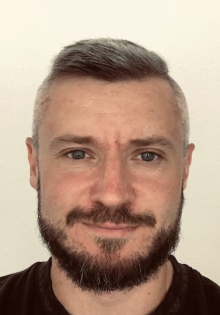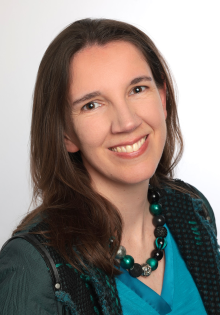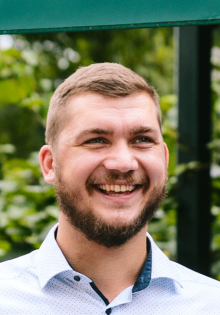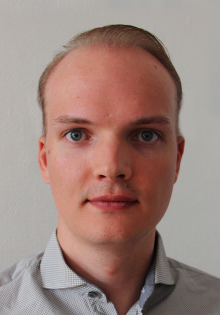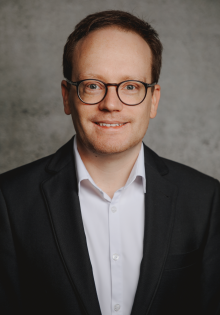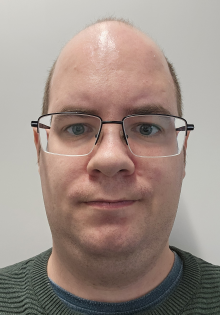
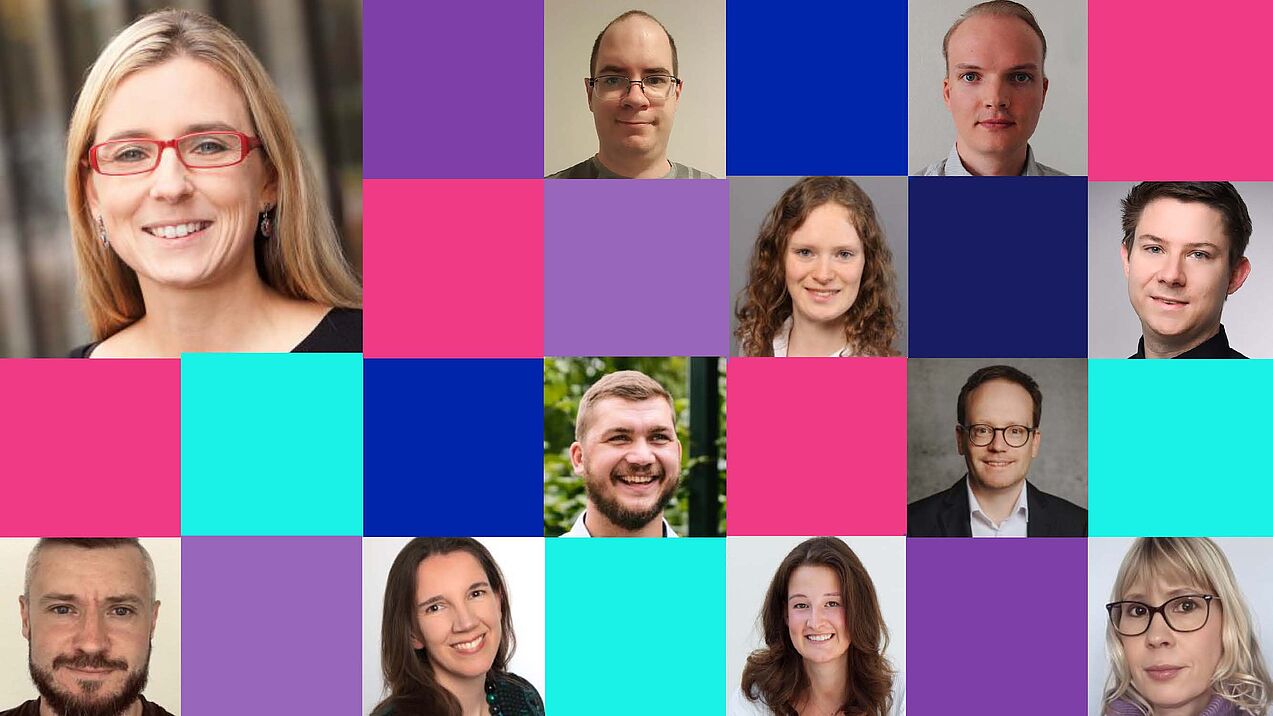
Willkommen auf den Webseiten der MALEO Gruppe
Die Gruppe Maschinelles Lernen und Optimierung (MALEO) unter der Leitung von Prof. Dr. Heike Trautmann wurde im Oktober 2023 an der Universität Paderborn gegründet. Unsere theoretische und empirische Forschung konzentriert sich auf (vertrauenswürdige) Künstliche Intelligenz, Data Science, (automatisiertes) maschinelles Lernen, automatisierte Algorithmenauswahl und -konfiguration, explorative Landschaftsanalyse, Analyse von randomisierten Suchheuristiken und (mehrkriterielle) evolutionäre Optimierung. In interdisziplinärer Zusammenarbeit befassen wir uns darüber hinaus mit Themen der Computational Social Sciences wie Social Influence Analysis und Disinformation Campaign Detection in Online-Medien. Wir haben vielfältige und umfangreiche nationale sowie internationale Kooperationen mit besonders starken Verbindungen zur Universität Twente, Enschede. Auf europäischer Ebene unterstützen wir die Confederation of Laboratories for Artificial Intelligence Research in Europe (CLAIRE) und das European Research Center for Information Systems (ERCIS).
Für weitere Information verweisen wir auf die offizielle Website unserer Gruppe.
MALEO Team
Lehre
Aktuelle Lehre
Machine Learning 1
Vorlesung (Master, Englisch)
Dozent: Dr. Jeroen Rook + Prof. Dr. Heike Trautmann
Due to the ever increasing amount of data that is routinely produced in our information society, the topic of machine learning has become increasingly important in the recent years, not only as a scientific discipline but also as a key technology of modern software and intelligent systems.
This lecture provides an introduction to the topic of machine learning, with a specific focus on supervised learning for classification and regression. The lecture covers theoretical foundations of generalisation as well as practical topics and concrete learning algorithms.
The course is structured into three pilars:
- foundations (e.g., the learning problem, generalization theory, bias-variance tradeoff)
- techniques (e.g., The linear model, non-linear techniques, SVM, tree-based methods, ensembles, deep learning), and
validation and practical implementations (e.g., metrics, training vs testing, cross-validation, AutoML).
Social Media Analytics
Seminar (Master, Englisch)
Dozentinnen: Dr. Britta Grimme, Prof. Heike Trautmann
This seminar explores Social Media Analytics, with a focus on the unique challenges and opportunities presented by data streams and data stream mining algorithms. The primary emphasis will be on textual data from social media platforms. Key application areas include disinformation campaign detection and synthetic social network data generation. The seminar will be divided into two phases: a theoretical introduction followed by experimental work in groups.
Automated Algorithm Selection for Optimization
Seminar (Master, Englisch)
Dozent: Dr. Urban Scvorc
When solving numerical or combinatorial optimization problems, it has been shown both in theory and in practice that optimization performance on any specific problem highly depends on the algorithm used to solve it. An algorithm that works well on a certain type of problem might work poorly on a different type of problem.
Rather than trying to develop a single algorithm that would work well on every known optimization problem, we can instead focus on an alternative: on creating a system that predict which optimization algorithm will work best on the problem that we are trying to solve.
In this seminar, we will look at, and attempt to improve on, current state-of-the-art approaches to this problem. We will cover both the machine learning techniques used, as well as techniques for automatically determining properties of the optimization problems that can be used as training data for our machine learning model.
Evolutionary Computation
Proseminar (Bachelor, Englisch)
Dozent: Dr. Jeroen Rook
Evolutionary computation is a branch of artificial intelligence inspired by the principles of natural evolution and biological behavior. By mimicking processes such as selection, mutation, and recombination, evolutionary algorithms can efficiently explore large and complex search spaces, often finding effective solutions where traditional, more exact, methods struggle. These approaches are widely applied today, from optimizing engineering designs and training neural networks to solving scheduling, logistics, and resource allocation problems.
In this seminar, we will explore several main paradigms of evolutionary computation, including evolutionary strategies, genetic algorithms, genetic programming, and swarm intelligence. The focus of each group will be on mastering one of these paradigms by conducting a literature review, implementing them, and analysing how they are applied to real-world problems. Each group will present their findings to the other seminar participants and write a report.
Intelligent AI Assistants for adessoGPT based on OpenAI on Azure (adessoGPT)
Projektgruppe (Master, Englisch)
Dozenten: Dr. Moritz Seiler, Prof. Heike Trautmann
The student project group will collaborate with adesso to enhance the adessoGPT toolkit, which is also in use by customers, by developing intelligent AI assistants based on OpenAI technology and hosted on the Azure platform. The goal is to improve the functionalities of the AI assistant and integrate new, useful features that help users manage their daily tasks more efficiently. A central aspect of the project will be the development of functions that enable the AI assistant to respond to emails, schedule appointments, and transcribe meetings. These features are intended to not only increase user productivity but also simplify and make interactions with technology more intuitive. The technology used in the Project is Azure and its AI Services, C# and .net for the backend, react for the frontend and python for AI functions.
Geplante Lehre
Unsupervised Learning and Evolutionary Computation Using R
Vorlesung (Master, Englisch)
Dozenten: Dr. Moritz Seiler + Lea-Marie Sussek
The course includes the formal and applied concepts of unsupervised machine learning and its implementation in the statistical programming language R.
In particular, the following topics are covered in a theoretical and applied manner:
- Introduction to the statistical programming language R
- Data pre-processing and quality aspects of data
- (Stream) clustering techniques
- Dimensionality reduction techniques
- Basic principles of evolutionary optimisation, both single- and multi-objective
- Practical application of the methods using R in individual and group work / case studies
Multi-Objective Optimisation
Vorlesung (Master, Englisch)
Dozenten: Dr. Urban Skvorc + Dr. Jeroen Rook
Optimization problems are ubiquitous, and we all (approximately) solve them in everyday life, such as when finding routes with Google Maps to quickly get from point A to point B or deciding on a checkout lane with the shortest waiting queue (shortest expected waiting time) at the supermarket. However, optimization problems are rarely single-criteria. Instead, they are typically multi-criteria in nature, with the individual objectives usually conflicting with each other. For example, in route planning, the distance traveled may be relevant (shorter is better), and fuel consumption may also be a consideration (lower is better). The shortest route may lead through the city center with many stop-and-go maneuvers at red lights, especially during peak hours. On the other hand, a longer route around the city may consume less fuel. Accordingly, the goal in multi-objective optimization is to find a set of optimal compromise solutions. This course provides a comprehensive introduction to multi-objective optimization and the asso- ciated challenges. In addition to classical general approaches, exact methods for selected com- binatorial optimization problems are presented, along with heuristic (nature-inspired) methods. The course also covers heuristic solution approaches for problems with more than three criteria (many-objective optimization).
Seminar: "tba"
Seminar (Master englisch)
Dozenten: Dr. Jakob Bossek + Prof. Dr. Heike Trautmann
Proseminar: Evolutionary Combinatorial Optimisation
Proseminar (Bachelor, Englisch)
Dozent: Dr. Jakob Bossek
The key idea of this seminar is to dive into diverse topics in the context of evolutionary computation with focus on combinatorial optimisation problems. Evolutionary algorithms (EAs) are bio-inspired randomized search heuristics that mimic principles from natural evolution to “evolve” good solutions iteratively. Such algorithms particularly shine in the context of finding good solutions for black-box optimization problems (where knowledge about the function at hand is obtainable via queries only) or (multi-objective) NP-hard combinatorial optimisation problems.
Automated Algorithm Configuration
Seminar (Master, Englisch)
Dozenten: Prof. Dr. Heike Trautmann + Dr. Jeroen Rook
Vergangene Lehre
- Vorlesung: Multi-Objective Optimisation (Dr. Jakob Bossek)
(Master, Englisch, 3V + 2 x 2Ü)
Optimization problems are ubiquitous, and we all (approximately) solve them in everyday life, such as when finding routes with Google Maps to quickly get from point A to point B or deciding on a checkout lane with the shortest waiting queue (shortest expected waiting time) at the supermarket. However, optimization problems are rarely single-criteria. Instead, they are typically multi-criteria in nature, with the individual objectives usually conflicting with each other. For example, in route planning, the distance traveled may be relevant (shorter is better), and fuel consumption may also be a consideration (lower is better). The shortest route may lead through the city center with many stop-and-go maneuvers at red lights, especially during peak hours. On the other hand, a longer route around the city may consume less fuel. Accordingly, the goal in multi-objective optimization is to find a set of optimal compromise solutions.
This course provides a comprehensive introduction to multi-objective optimization and the associated challenges. In addition to classical general approaches, exact methods for selected combinatorial optimization problems are presented, along with heuristic (nature-inspired) methods. The course also covers heuristic solution approaches for problems with more than three criteria (many-objective optimization).
- Vorlesung: Programmierung 2 (Dr. Jakob Bossek)
(Bachelor, Deutsch, 3V + 4Ü)
Die Veranstaltung setzt auf den Kenntnissen der Lehrveranstaltung Programmierung I auf und erweitert und vertieft diese. Dabei liegt der Schwerpunkt auf objektorientierter Programmierung sowie der Konzeption und Implementierung von grundlegenden Algorithmen und Datenstrukturen wie Such- und Sortierverfahren, Bäumen und Graphen und ihrer Traversierung sowie auf der korrekten Implementierung nebenläufiger Programme.
- Vorlesung: Angewandte Statistik mit R (Oliver Preuß)
(Bachelor, Deutsch, 3V + 2Ü)
Die Vorlesung bietet einen Überblick über deskriptive Statistik und explorative Datenanalyse sowie über induktive Statistik und die Grundlagen der Wahrscheinlichkeitstheorie. Neben der Vermittlung eines intuitiven Verständnisses der jeweiligen Methoden liegt ein weiterer Schwerpunkt auf der angewandten Datenanalyse unter Verwendung der statistischen Programmiersprache R, die im ersten Block der Vorlesung im Rahmen eines Programmierkurses eingeführt wird. Vorkenntnisse in R sind nicht erforderlich.
- Seminar: Machine Learning Assisted Evolutionary Multi- and Many- Objective Optimization (Prof. Dr. Heike Trautmann)
(Master, Englisch)
This seminar, partly based on an upcoming respective book by Saxena, Deb et al. (2024), focuses on machine learning (ML) assisted evolutionary multi- and many-objective optimization (EMO). EMO algorithms, namely EMOAs, iteratively evolve a set of solutions towards an optimal trade-off surface, i.e. Pareto Front. The availability of multiple solution sets over successive generations makes EMOAs amenable to application of ML for different pursuits, a large proportion of optimization problems in practice is multi-objective in nature.
We will cover the foundations of optimization, including problem and algorithm types and then focus on key studies on ML-based enhancements in the EMO domain, systematically addressing important aspects. Moreover, we will discuss Auto-ML based techniques such as Automated EMOA configuration. The seminar will have two phases, theoretical will be followed by experimental work in groups.
- Projektgruppe mit Adesso (Dr. Moritz Seiler + Prof. Dr. Heike Trautmann)
- Lecture: Programmierung (Bachelor, Deutsch, 4V + 2Ü)
Lecturer: Dr. Jakob Bossek
Softwareentwicklung ist ein zentrales Arbeitsgebiet der Informatik. Software-Entwickler müssen Aufgaben analysieren und modellieren, Software-Strukturen entwerfen und diese in einer Programmiersprache implementieren können. Dieser Modul vermittelt einführende und wissenschaftlich fundierte Kenntnisse und Fähigkeiten in der Programmierung. Zusammen mit den Modulen Programmierung 2, Programmiersprachen, Softwareengineering und dem Softwaretechnikpraktikum werden damit die wissenschaftlichen Grundlagen für das Arbeitsgebiet Software-Entwicklung gelegt und praktisch eingeübt. Dieses Modul soll die Teilnehmer befähigen, eine für die Software-Entwicklung relevante Programmiersprache anzuwenden (zur Zeit Python, in geringerem Umfang auch Java), Grundbegriffe der objektorientierten Programmiermethodik einzusetzen, sowie Algorithmen in Programmen zu implementieren.
- Lecture: Unsupervised Learning and Evolutionary Computation Using R (Master, English, 3V + 2Ü)
Lecturer: Dr. Jakob Bossek
- Project group: (Master, English) Next Gen User Interface for optimization software based on Generative AI (GenUIne)
Lecturer: Dr. Moritz Seiler
- Vorlesung: Angewandte Statistik mit R
Lecturer: Prof. Dr. Heike Trautmann
Die Vorlesung gibt einen Überblick über sowohl deskriptive Statistik und explorative Datenanalyse als auch induktive Statistik und Grundlagen der Wahrscheinlichkeitsrechnung. Der Schwerpunkt liegt neben der Vermittlung von intuitivem Verständnis auf der angewandten Datenanalyse unter Zuhilfenahme der statistischen Programmiersprache R, die im ersten Block der Vorlesung im Rahmen eines Programmierkurses eingeführt wird, entsprechende Vorkenntnisse sind hier nicht erforderlich.
- Vorlesung: Multi-Objective Optimisation
Lecturer: Dr. Jakob Bossek
Optimization problems are ubiquitous, and we all (approximately) solve them in everyday life, such as when finding routes with Google Maps to quickly get from point A to point B or deciding on a checkout lane with the shortest waiting queue (shortest expected waiting time) at the supermarket. However, optimization problems are rarely single-criteria. Instead, they are typically multi-criteria in nature, with the individual objectives usually conflicting with each other. For example, in route planning, the distance traveled may be relevant (shorter is better), and fuel consumption may also be a consideration (lower is better). The shortest route may lead through the city center with many stop-and-go maneuvers at red lights, especially during peak hours. On the other hand, a longer route around the city may consume less fuel. Accordingly, the goal in multi-objective optimization is to find a set of optimal compromise solutions.
This course provides a comprehensive introduction to multi-objective optimization and the associated challenges. In addition to classical general approaches, exact methods for selected combinatorial optimization problems are presented, along with heuristic (nature-inspired) methods. The course also covers heuristic solution approaches for problems with more than three criteria (many-objective optimization).
- Seminar: Machine Learning Assisted Evolutionary Multi- and Many- Objective Optimization
Lecturer: Prof. Dr. Heike Trautmann
This seminar, partly based on an upcoming respective book by Saxena, Deb et al. (2024), focuses on machine learning (ML) assisted evolutionary multi- and many-objective optimization (EMO). EMO algorithms, namely EMOAs, iteratively evolve a set of solutions towards an optimal trade-off surface, i.e. Pareto Front. The availability of multiple solution sets over successive generations makes EMOAs amenable to application of ML for different pursuits, a large proportion of optimization problems in practice is multi-objective in nature.
We will cover the foundations of optimization, including problem and algorithm types and then focus on key studies on ML-based enhancements in the EMO domain, systematically addressing important aspects. Moreover, we will discuss Auto-ML based techniques such as Automated EMOA configuration. The seminar will have two phases, theoretical will be followed by experimental work in groups.
- Seminar: Data Stream Mining
Lecturer: Prof. Dr. Heike Trautmann
This seminar will focus on the characteristics of Data Streams and related Data Stream Mining algorithms. We will mainly concentrate on textual data in the social networks domain and discuss application areas such as Disinformation Campaign Detection or Synthetic Social Network Data Generation. The seminar will have two phases, theoretical will be followed by experimental work in groups.
- Proseminar: Evolutionary Computation
Lecturer: Dr. Jakob Bossek
The key idea of this seminar is to dive into diverse topics in the context of evolutionary computation. Evolutionary algorithms (EAs) are bio-inspired randomized search heuristics that mimic principles from natural evolution to “evolve” good solutions iteratively. Such algorithms particularly shine in the context of finding good solutions for black-box optimization problems (where knowledge about the function at hand is obtainable via queries only) or (multi-objective) NP-hard combinatorial optimisation problems
- Project Group: Next Gen User Interface for optimization software based on Generative AI (GenUIne)
Lecturer: Dr. Moritz Seiler, Prof. Dr. Heike Trautmann
Using generative AI we are going to re-invent the next gen User Interface for optimization software in close cooperation with the company Optano (https://optano.com).
Optimization software (e.g. https://optano.com/en/solutions/) has a wide range of use cases and features, it is hard to learn and complex to use, especially when users are no domain experts or rarely use such tools. For those users the power of optimization remains a locked secret.
This project will demonstrate how latest generative AI, e.g. LLMs, can support users to understand complex software products, get insight in their data and run complex tasks automatically and without deep knowledge of the tool. Users will interact with optimization software using their mother tongue. We will create a great experience for users. We leverage GenAI. We are GenUIne!
- Vorlesung: Unsupervised Learning and Evolutionary Optimisation Using R
- Seminar: Automated Algorithm Selection
Projekte
Using rail mobility to contribute to highly automated, digitalised and sustainable mobility and to rethink interfaces with other modes of transport - this is the aim of the project "Automated rail transport as the basis for sustainable, networked mobility in rural areas (enableATO)", in which researchers from Paderborn University are involved. The project will be based at the RailCampus OWL in Minden. Minden is thus one of four locations within the DZM (German Centre for Future Mobility).
Over the next three years, a strong project consortium of universities, Fraunhofer institutes in the region and companies will advance technologies for automated, rail-based mobility concepts and research and identify interfaces between rail-based mobility and other modes of transport in rural areas. Driverless rail transport systems such as the MONOCAB or the road-rail vehicle will demonstrate automated rail transport in Minden and Extertal. The aim is to use them in regular test operations in the near future.
The funding of 12.5 million euros is being provided by the Federal Ministry for Digital and Transport Affairs (BMDV).
The aim of the "enableATO" project is to enable modern ideas for automated rail mobility and their investigation in new rail-based approaches in rural areas. The focus is on technologies related to automated driving such as perception by sensors, authorisation issues, intelligent maintenance and the demonstration of technologies, e.g. in the MONOCAB. At the same time, initial questions regarding user acceptance are being researched and addressed and the scientific dialogue strengthened.
The challenge of transport system transformation is to combine sustainability and efficiency. Automation, autonomous driving, intelligent traffic management, digital connectivity and networked mobility play a central role in this context. The RailCampus OWL as an innovation centre for this project provides space for new impulses and makes a decisive contribution to the research and development of new automated mobility approaches for sustainable rail mobility as a socially relevant factor.
Investigating rail-bound mobility at the RailCampus OWL
The RailCampus OWL pools and expands expertise and will create and utilise new things in this project. Various new mobility approaches are being researched and demonstrated there, such as automated transport with the MONOCAB developed by TH OWL and a two-way vehicle that was initially designed at Bielefeld University of Applied Sciences and Arts for logistics applications and can travel on both rail and road. These approaches aim to reactivate unused railway infrastructure and use it sustainably for more individualised mobility by rail, but require automation.
Strong partnership for sustainable mobility
The project consortium is made up of renowned partners. In addition to Paderborn University, the consortium includes Bielefeld University, Bielefeld University of Applied Sciences and Arts, Ostwestfalen-Lippe University of Applied Sciences and Arts, DB Systemtechnik GmbH, Wölfel Engineering GmbH + Co KG, HARTING Technology Group, Pilz GmbH & Co. KG and the Fraunhofer Institutes IEM (Paderborn) and IOSB-INA (Lemgo). Associated partners are WAGO and DB Cargo AG. Together, the partners are contributing extensive expertise and many years of experience to advance the vision of sustainable, networked and automated mobility in rural areas. The enableATO project will make an important contribution to this.
Algorithm-based approaches, such as machine learning, are becoming increasingly complex. This lack of transparency only makes it more difficult for human users to understand and accept the decisions proposed by artificial intelligence (AI). In response to these societal challenges, computer scientists have begun to develop self-explanatory algorithms that provide intelligent explanations (so-called “explainable artificial intelligence” – XAI). XAI programs, however, only interact with humans to a limited extent and do not take into account the given context or the types of information the humans being addressed need. This runs the risk of generating AI explanations that will not be understood by the human user.
Members of the Transregional Collaborative Research Centre “Constructing Explainability” (TRR 318) are challenging this view by instead conceiving of explanation as a process of co-construction: in this model, the person receiving the explanation takes an active role in the AI explanatory process and co-constructs both the goal and the process of explanation. In a collaborative, interdisciplinary approach, the mechanisms of explainability and explanations are being investigated by 21 project leads assisted by approximately 30 researchers from fields as diverse as linguistics, psychology, and media studies, to sociology, economics, and computer science.
The findings of the research efforts from TRR 318 will contribute to the development of:
- A multi-disciplinary understanding of the explanatory process linked to the process of understanding and the contextual factors influencing it.
- Computer models and complex artificial intelligence systems that can generate situation-specific and efficient explanations for their addressees.
- A theory of explanation as social practice that considers the expectations of the person being communicated with, as well as their role in the interaction.
These foundations for explainable and understandable artificial intelligence systems will enable greater active and critical participation in the digital world.
This COST Action aims at making randomised optimisation algorithms widely competitive in practice by identifying and reducing obstacles to their adoption at the scientific, technical, economic, and human levels. It focuses on meeting the needs of practitioners, from whose activities the economic value of optimisation solvers stems. These needs are taken as the driving force for new theoretical, methodological, and technical advances leading to the sustainable development of widely available software tools, training materials and programmes, and ultimately to more extensive acceptance and deployment of these methods.
Publikationen
Publikationen
2025
Landscape features in single-objective continuous optimization: Have we hit a wall in algorithm selection generalization?
G. Cenikj, G. Petelin, M. Seiler, N. Cenikj, T. Eftimov, Swarm Evol. Comput. 94 (2025) 101894.
Cluster Prevention in Evolutionary Diversity Optimization for Parallel Machine Scheduling
D. Wittner, J. Bossek, in: B. Filipic (Ed.), Proceedings of the Genetic and Evolutionary Computation Conference, GECCO 2025, NH Malaga Hotel, Malaga, Spain, July 14-18, 2025, ACM, 2025, pp. 340–348.
KernelMatmul: Scaling Gaussian Processes to Large Time Series
T. Hoffbauer, H.H. Hoos, J. Bossek, in: T. Walsh, J. Shah, Z. Kolter (Eds.), AAAI-25, Sponsored by the Association for the Advancement of Artificial Intelligence, February 25 - March 4, 2025, Philadelphia, PA, USA, AAAI Press, 2025, pp. 17223–17230.
Best Practices For Empirical Meta-Algorithmic Research: Guidelines from the COSEAL Research Network
T. Eimer, L. Schäpermeier, A. Biedenkapp, A. Tornede, L. Kotthoff, P. Leyman, M. Feurer, K. Eggensperger, K. Maile, T. Tornede, A. Kozak, K. Xue, M.D. Wever, M. Baratchi, D. Pulatov, H. Trautmann, H. Kashgarani, M. Lindauer, Best Practices For Empirical Meta-Algorithmic Research: Guidelines from the COSEAL Research Network, 2025.
An Evolutionary Approach for the Computation of ∈-Locally Optimal Solutions for Multi-Objective Multimodal Optimization
C. Hernández, A.E. Rodriguez-Fernandez, L. Schäpermeier, O. Cuate, H. Trautmann, O. Schütze, IEEE Transactions on Evolutionary Computation (2025) 1–1.
Efficient Online Automated Algorithm Selection in the Face of Data-Drift in Optimisation Problem Instances
J. Rook, Q. Renau, H. Trautmann, E. Hart, in: Proceedings of the 18th ACM/SIGEVO Conference on Foundations of Genetic Algorithms, FOGA 2025, Leiden, The Netherlands, August 27-29, 2025, ACM, 2025, pp. 262–272.
Hot off the Press: Finding ϵ-Locally Optimal Solutions for Multi-Objective Multimodal Optimization
A.E. Rodriguez-Fernandez, L. Schäpermeier, C.H. Castellanos, P. Kerschke, H. Trautmann, O. Schütze, in: Proceedings of the Genetic and Evolutionary Computation Conference, GECCO 2025, NH Malaga Hotel, Malaga, Spain, July 14-18, 2025, ACM, 2025, pp. 61–62.
Deep reinforcement learning for instance-specific algorithm configuration (GECCO Best Paper Award)
E. Schede, M. Seiler, K. Tierney, H. Trautmann, in: B. Filipic (Ed.), Proceedings of the Genetic and Evolutionary Computation Conference, GECCO 2025, NH Malaga Hotel, Malaga, Spain, July 14-18, 2025, ACM, 2025, pp. 1190–1198.
RandOptGen: A Unified Random Problem Generator for Single- and Multi-Objective Optimization Problems with Mixed-Variable Input Spaces
M. Seiler, O.L. Preuß, H. Trautmann, in: B. Filipic (Ed.), Proceedings of the Genetic and Evolutionary Computation Conference, GECCO 2025, NH Malaga Hotel, Malaga, Spain, July 14-18, 2025, ACM, 2025, pp. 76–84.
Automated Algorithm Configuration and Systematic Benchmarking for Heterogeneous MNK-Landscapes
O.L. Preuß, C. Mensendiek, J. Rook, J. Bossek, H. Trautmann, in: B. Filipic (Ed.), Proceedings of the Genetic and Evolutionary Computation Conference, GECCO 2025, NH Malaga Hotel, Malaga, Spain, July 14-18, 2025, ACM, 2025, pp. 58–66.
Alle Publikationen anzeigen
Kontakt
Marion Hucke
Machine Learning and Optimisation
Fürstenallee 11
33102 Paderborn

